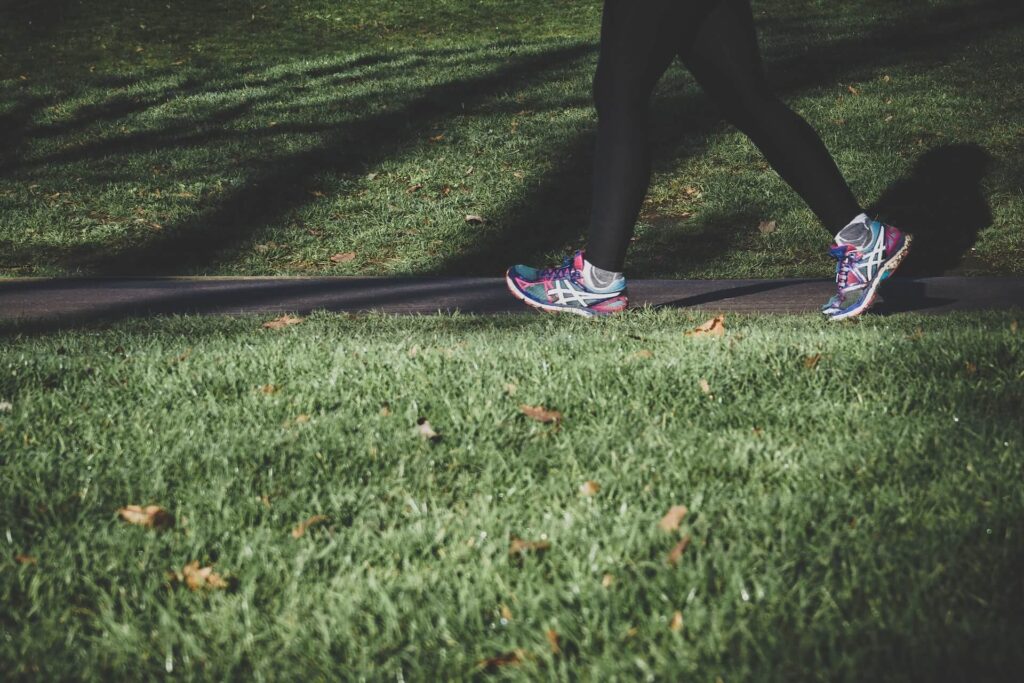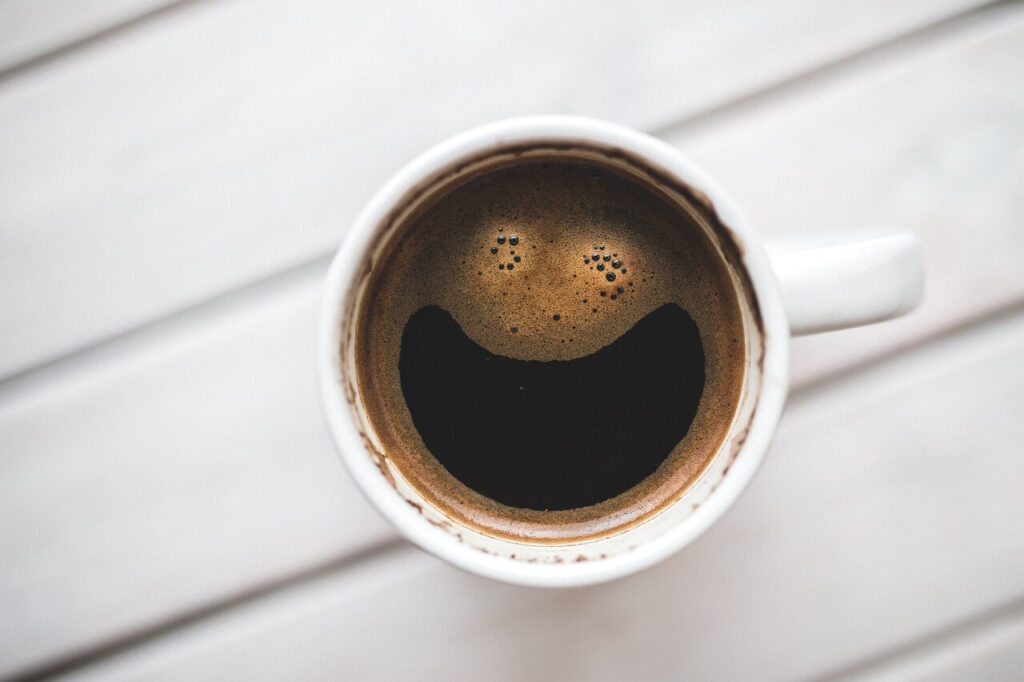Having trouble pooping? You’re not alone. Roughly 1 in 5 people suffer from chronic constipation worldwide.
If you’re one of them, you know firsthand that when things get “backed up,” it can be uncomfortable – and even painful.
But you don’t need to load up laxatives and stool softeners to find relief. With some simple shifts in your lifestyle, you can get your bowels in motion again, often quite quickly!
Read on to learn the top tips and tools for how to relieve constipation naturally. But first, let’s cover what constipation actually is.
Constipation 101
Simply put, constipation is when you’re having trouble going #2. Constipation affects people of all ages and looks different for everyone.
Common signs of constipation include:
- Having less than 3 bowel movements a week
- Difficulty passing stools
- Hard, lumpy stools
- Feeling like all your stool didn’t come out after you poop
Everyone gets plugged up now and then. But when these symptoms persist for three months or longer, it’s considered chronic constipation.
What Causes Constipation?
Some of the most common causes of constipation include:
- Dehydration
- Lack of dietary fiber
- Sedentary lifestyles
- Stress
- Pregnancy
- Overusing laxatives
- Gut imbalances
- Food intolerances
- Irritable bowel syndrome (IBS)
- Pelvic floor dysfunction
- Medications including painkillers, antacids, iron supplements, calcium channel blockers & some antidepressants
- Health conditions like hypothyroidism & diabetes
- Not going #2 when you feel the urge
10 Home Remedies for Constipation
If chronic constipation has you feeling bloated and uncomfortable, know there is hope. Often, simple lifestyle shifts are all it takes to get your bowels moving.
Here are 10 top tips to reduce constipation naturally:
1 – Drink more water

Dehydration is one of the most common culprits behind constipation. This isn’t all that surprising, as 75% of people don’t drink enough water. So if you want to get your bowels moving, step one is to drink more water.
Water softens your stools to make them easier to pass. How much water do you need? It’ll depend on your age and activity level. A good rule of thumb is to aim for eight 8-ounce glasses of water a day. Drinking warm water in the morning may also help coax a poop out of you.
2 – Eat fiber-rich foods
One of the easiest ways to get pooping is to increase your fiber intake. There are two types of dietary fiber and each has unique effects on your digestion.
- Soluble fiber absorbs water and softens your stools. Foods high in soluble fiber include beans, avocados, sweet potatoes, broccoli, pears, apples, flaxseed, and oats.
- Insoluble fiber bulks your stools to help them pass more quickly. Foods high in insoluble fiber include vegetables, whole grains, nuts, and wheat bran.
Your fiber needs vary depending on your age and sex. Most health experts say women need 25 grams of fiber, while men need 38 grams.

3 – Exercise regularly
If you want to get your bowels moving, get your body moving! Physical activity is proven to improve constipation symptoms. It increases blood flow to the abdomen to stimulate digestion.
Aim to get 20-30 minutes of gentle to moderate exercise most days. Going for a short walk after meals is also a great habit to support your digestion.
4 – Eat probiotic & prebiotic food
People with chronic constipation and IBS often have imbalances in gut bacteria. In particular, low levels of Bifidobacteria and Lactobacillus. One simple way to remedy this is to eat probiotic and prebiotic-rich foods.
Fermented foods like yogurt, kefir, sauerkraut, miso, and kimchi contain active cultures to replenish your gut bacteria. If you’re not keen on fermented foods, taking a probiotic supplement is another option.
Prebiotic foods contain indigestible fibers that feed your friendly gut bacteria. Prebiotic-rich foods include garlic, onions, chicory root, bananas, oats, apples, asparagus, and dandelion greens.
5 – Check your poop position
Pre-toliets, humans squatted to poop. For some people, simulating this position can make it easier to pass a bowel movement. To try it, place a small stool under your legs so your knees are above your hips. Or consider investing in a squatty potty.
6 – Have a cup of coffee

Your morning coffee might just get your bowels moving. Caffeine has acids that boost the hormone gastrin. This stimulates bowel contractions, and in some people, can increase the urge to poop.
That said, if you’re sensitive to caffeine, it could irritate your gut. So if coffee sets you off, steer clear of it.
7 – Try a castor oil pack
Castor oil is renowned for its laxative properties. And while you can consume castor oil internally, doing a castor oil pack is a more pleasant way to reap these benefits.
Castor oil hydrates and lubricates the intestines. This makes your stool softer and easier to pass. If you’re new to castor oil packs, check out this video for a thorough walk-through.
Tip: For an extra boost, open a probiotic capsule and mix it with a little oil. Place it in your belly button while doing the castor oil pack.
8 – Steer clear of dairy
Constipation is a common sign of lactose intolerance. So if you feel “plugged up” after having dairy, you may want to avoid it. Luckily, there are plenty of dairy-free options available today. Try some almond milk, oat milk, or coconut yogurt instead.
9 – Keep a lid on stress
Your gut and brain are deeply connected. That’s why when you’re stressed out, it can throw off your digestion. For some people, this may lead to constipation.

To keep stress (and your bowels) in check, set aside at least 10-15 minutes every day for relaxation. Sip a cup of tea, meditate, call a friend, take a warm bath, or do some yoga. Whatever helps you relax best.
10 – Try the low FODMAP diet
Some people with IBS can be triggered by certain types of fiber, which can lead to constipation. The low FODMAP diet eliminates these foods for a period of time to allow the gut to heal.
If you’ve tried bumping up your water and fiber, but are still backed up, the low FODMAP diet may be worth trying. Fair warning, it can be a bit overwhelming at first. If you need help, a functional medicine practitioner or nutritionist can guide you through it.
Ways to Relieve Constipation Quickly
The tips above should go a long way to getting your bowels in motion. But like most lifestyle habits, they probably won’t work overnight.
In the meantime, if you haven’t pooped in days and need some fast relief, here are a few ways to get your bowels moving quickly.

Drink a cup of senna tea
Senna is an herb that’s well-known for its laxative effects. It contains plant compounds called glycosides, which stimulate bowel contractions. Drinking a cup of senna tea can offer immediate constipation relief. Typically, it produces a bowel movement within 6 to 12 hours
While effective, senna isn’t meant for long-term use (no more than 7 days). Relying on it for too long can make your bowels not work properly.
Try psyllium
This fiber supplement is often used for constipation. When combined with water, it swells to bulk your stools. This can trigger intestinal contractions to help stool pass through.
Most people who take psyllium have a bowel movement within 12-72 hours. But like senna, it’s best not to rely on psyllium long-term. Yet it’s a good tool when you need quick relief.
Take magnesium citrate
Magnesium citrate is an osmotic laxative, meaning it pulls water into the bowels to make stool easier to pass. That said, it’s also not meant for long-term use. When taken regularly, your body may become dependent on it to poop.
Taking too much magnesium citrate could cause loose or watery stools. So stick to the dosage on the bottle (here’s my favorite brand).
Do an enema
While it’s not the most fun option, doing an enema is a surefire way to poop. Enemas soften hard stools to help clear out your bowels fast. While enemas work, they can be a little intimidating if you’re new to them. This article can guide you through it.
Try essential oils
There’s an essential oil for everything, including constipation. Check out the essential oil blend Digize by Young Living. It’s packed with ingredients that support digestion like ginger, peppermint, and fennel.
Simply apply a little to your abdomen and rub in a clockwise motion. It may be just the nudge your bowels need to get moving.
What Holistic Treatments Help With Constipation?
Here are a few holistic techniques that may also help get you pooping:
Abdominal massage
Yep, massage isn’t just to ease pain and stress. Abdominal massage is proven to relieve chronic constipation too. It’s shown to reduce straining and bloating and increase the number of bowel movements.
Pelvic floor physical therapy
Some people unconsciously clench their pelvic floor muscles – the very muscles that help you poop. When these muscles are tight non-stop, it can lead to constipation. Pelvic floor therapy trains these muscles to relax. Over time, this may ease constipation symptoms.

Acupuncture
Acupuncture practitioners insert tiny needles into the skin to promote the flow of energy (or qi). For some people, this can improve digestion and relieve constipation. Research shows acupuncture is a safe and effective way to improve stool frequency.
Can Functional Medicine Improve Constipation?
Absolutely! Especially if you’ve tried the tips above and are still backed up. Sometimes chronic constipation is due to an underlying health condition, like hypothyroidism, diabetes, or gut dysbiosis.
Treating these conditions is crucial to restoring proper bowel function. So if you’ve upped your water, fiber, and exercise, but still aren’t pooping regularly, you may want to visit a functional medicine doctor.
Functional medicine doctors are experts at finding the root cause behind your symptoms, including constipation. When you go the functional medicine route, you get holistic solutions for long-term relief, instead of quick fixes that don’t really work.
Get Relief from Constipation with a Functional Medicine Doctor in Orland Park, IL
Struggling with chronic constipation and live in the Chicago area? Anchored in Health is here to help. Our functional medicine doctor can help you uncover what’s at the root of your digestive distress so you can finally find relief.
So if you’re ready to banish bloating and improve constipation, follow these steps:
- Contact us with questions.
- Book your first appointment with our functional medicine doctor here.
- Experience how functional medicine can reduce constipation and improve your quality of life.
Other Wellness Services Offered at Anchored in Health in Orland Park, IL
At Anchored in Health, we offer a variety of holistic health services to help you achieve your health goals. This includes acupuncture, massage therapy, chiropractic care, and the Shape ReClaimed program. We even offer holistic assessment tools like thermography and genetic testing.
Contact us to learn more about how we can support you in living your healthiest life!
Disclaimer: The information provided on this blog is for educational and informational purposes only and is not intended to diagnose, treat, cure, or prevent any disease. The content is not a substitute for professional medical advice, diagnosis, or treatment. Always seek the guidance of a qualified healthcare provider with any questions you may have regarding your health or a medical condition.
Reading this blog does not establish a doctor-patient relationship between you and Anchored In Health or any of its practitioners. Reliance on any information provided in this blog is solely at your own risk. For medical concerns, always consult a licensed healthcare provider.
References
- https://pubmed.ncbi.nlm.nih.gov/27261894/
- https://www.ncbi.nlm.nih.gov/books/NBK555956/
- https://pubmed.ncbi.nlm.nih.gov/30843436/
- https://www.ncbi.nlm.nih.gov/pmc/articles/PMC6379309/
- https://www.sciencedirect.com/science/article/abs/pii/S1744388110000320
- https://www.ncbi.nlm.nih.gov/pmc/articles/PMC9105309/
- https://www.ncbi.nlm.nih.gov/pmc/articles/PMC7310914/
- https://pubmed.ncbi.nlm.nih.gov/31358243/
- https://www.ncbi.nlm.nih.gov/pmc/articles/PMC7317618/
